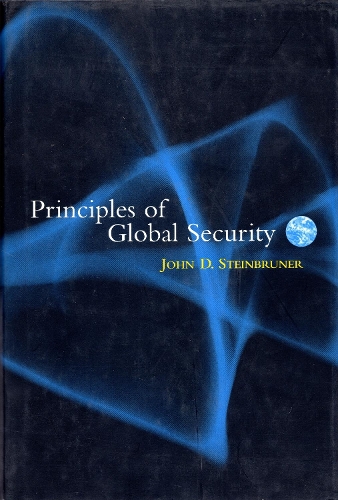
Principles of Global Security
(Hardback)
Available Formats
Publishing Details
Principles of Global Security
By (Author) John D. Steinbruner
Bloomsbury Publishing PLC
Brookings Institution
1st April 2000
United States
Classifications
Professional and Scholarly
Non Fiction
327.172
Physical Properties
Hardback
272
Width 158mm, Height 235mm, Spine 26mm
576g
Description
"
From the earliest human records, warfare has been both an organizing focus and a prime source of political motivation. Countless battles have been fought in the course of colonizing the planet, and the experience has created a legacy of military confrontation that many people consider immutable. Since preparations for war and the occasional conduct of it have been central preoccupations for virtually all the major states throughout time, it is widely assumed that the pattern is rooted in human nature and will endure indefinitely. But contemporary civilization is undergoing a monumental transformation affecting its most basic features. The combined effects of information technology, population dynamics, and the globalization of economic activity are altering some of the critical operating conditions of human societies and appear to be inducing a new pattern of interaction. Correspondingly, fundamental changes in the practice of war-or what is now more politely called international security-can be expected to follow. Principles of Global Security anticipates the major implications of this massive transformation for security policy. John D. Steinbruner, one of the nation's leading specialists on defense issues, identifies formative problems and organizing principles relating to the predictable issues of security. He examines in sequence how the configuration of nuclear and conventional forces might be affected, how the problems of communal violence and dangers of technical proliferation might be managed, and how security relationships among the major states might be altered. One of the fundamental implications of globalization in a post-cold war environment is a shift in security policy from deterrence to reassurance, from active confrontation to cooperative engagement. Without an opponent to justify preparation for large-scale traditional missions, nations must establish safer and less volatile patterns of deployment. Maintaining global security in the twenty-first century calls for a reconfiguration of basic relationships among historical opponents, as well as revisions in military practices. This visionary work will stimulate productive thinking among policymakers seeking to reshape the legacies of the cold war with a new conceptualization of international security.
"Reviews
"An important account of the transforming global security landscape....thought-provoking." G. John Ikenberry, Foreign Affairs, 10/1/2000
|"The Brookings Institution Press continues its reputation for excellence with the publication of a number of recent works examining US defense strategy and the American security agenda.... This is a must read for scholars and policymakers involved in the study and development of a strategy for international security in the information age." RHT, Parameters, U.S. Army War College Quarterly, 7/1/2001
|"John Steinbruner's latest work is the most persuasive argument to date for a radical reconception of contemporary security policy based upon an assessment of what purposes it ought to serve.... This is a work of synthesis on a magisterial scale.... His assesment is both provocative and original.... This book should be at the top of the required reading list for the incoming president and his secretaries of State and Defense. It should be read carefully by everyone in the foreign policymaking establishments of the U.S. alliance. Many might then be persuaded to embrace its vision. Then, and only then, will it truly be possible to begin to increase the security of much of humankind in unprecedented ways." Lynn H. Miller, Temple University, American Political Science Review, 6/1/2001
|"... there is plenty of food for thought in the book." Richard J. Stoll, Rice University, Journal of Politics, 5/1/2002
Author Bio
John D. Steinbruner is director of the Center for International and Security Studies at the University of Maryland.
